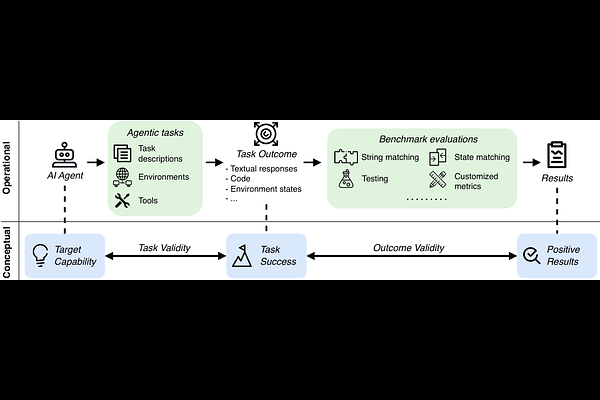Establishing Best Practices for Building Rigorous Agentic Benchmarks

Establishing Best Practices for Building Rigorous Agentic Benchmarks
Yuxuan Zhu, Tengjun Jin, Yada Pruksachatkun, Andy Zhang, Shu Liu, Sasha Cui, Sayash Kapoor, Shayne Longpre, Kevin Meng, Rebecca Weiss, Fazl Barez, Rahul Gupta, Jwala Dhamala, Jacob Merizian, Mario Giulianelli, Harry Coppock, Cozmin Ududec, Jasjeet Sekhon, Jacob Steinhardt, Antony Kellerman, Sarah Schwettmann, Matei Zaharia, Ion Stoica, Percy Liang, Daniel Kang
AbstractBenchmarks are essential for quantitatively tracking progress in AI. As AI agents become increasingly capable, researchers and practitioners have introduced agentic benchmarks to evaluate agents on complex, real-world tasks. These benchmarks typically measure agent capabilities by evaluating task outcomes via specific reward designs. However, we show that many agentic benchmarks have issues task setup or reward design. For example, SWE-bench Verified uses insufficient test cases, while TAU-bench counts empty responses as successful. Such issues can lead to under- or overestimation agents' performance by up to 100% in relative terms. To make agentic evaluation rigorous, we introduce the Agentic Benchmark Checklist (ABC), a set of guidelines that we synthesized from our benchmark-building experience, a survey of best practices, and previously reported issues. When applied to CVE-Bench, a benchmark with a particularly complex evaluation design, ABC reduces the performance overestimation by 33%.